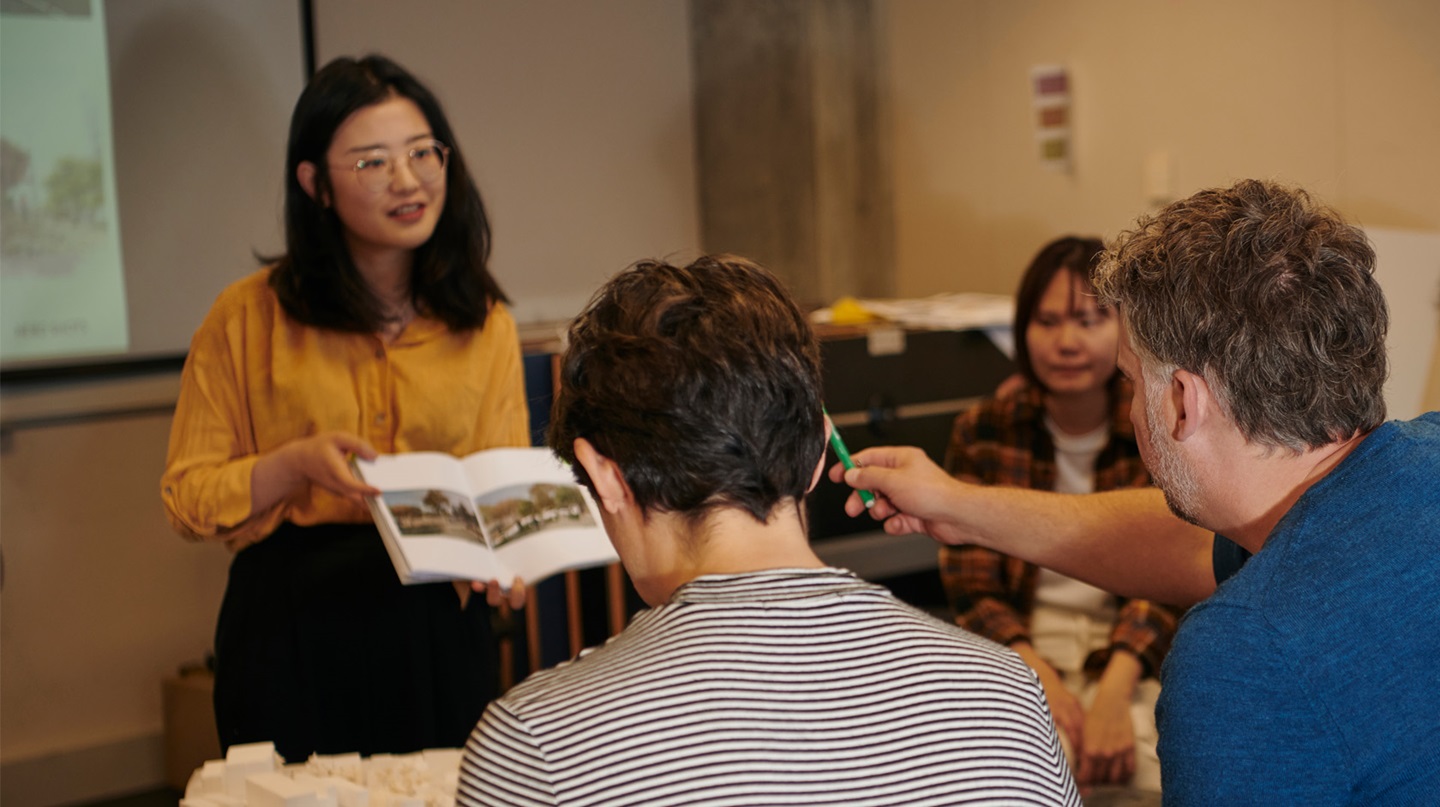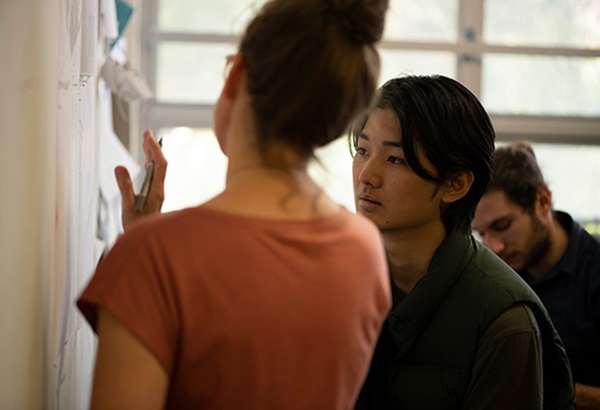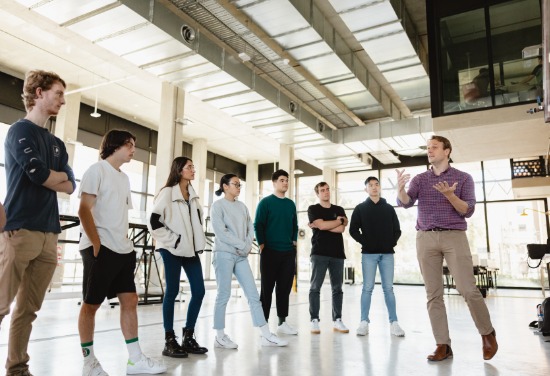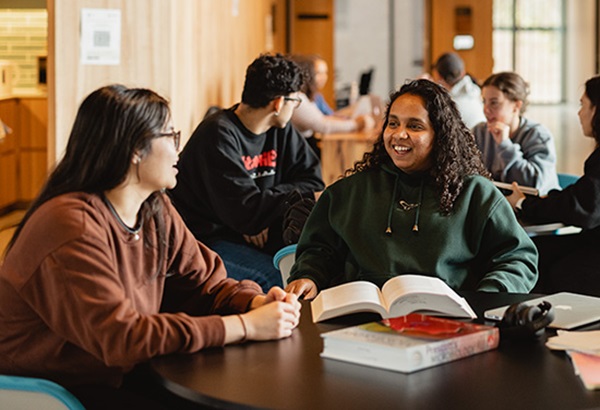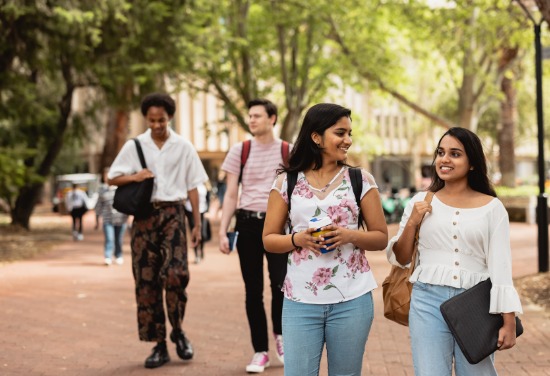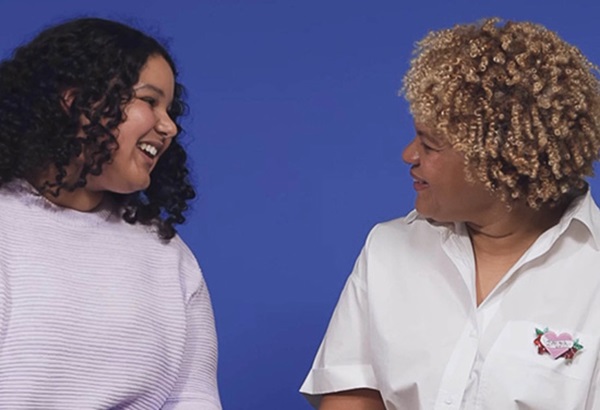The term ‘micro-credential’ may be the latest buzzword in higher education, but what is a micro-credential and why should you complete one?
A micro-credential is a short professional course that demonstrates your skills, knowledge and experience in a given subject area. The qualifications can be completed as a one-off or be stacked up towards a higher qualification.
UWA recently launched an initial suite of micro-credentials, with more in development, to assist those looking to upskill, change career or develop their interest in a particular area, so we spoke to UWA’s Pro Vice-Chancellor (Academic), Professor Graham Brown, about the new offerings.
“Our micro-credentials generally require between 50 and 150 hours of study and many are offered online, intensively or through blended delivery modes,” Professor Brown says.
“Micro-credentials can be used for advanced standing or credit into full-length degrees, they’re also perfect for busy professionals looking to upskill or learn something new without committing to a full degree.”
To learn more about our micro-credentials and other short courses, visit the UWA Plus website.
Interested? We spoke to the academics involved to find out more.
Micro-credential: Professional Writing and Communication
Academic lead: Associate Professor Tanya Dalziell
Starts: 7 September 2020
This six-week online course is designed for people looking to develop and apply successful communication methods. You’ll develop a range of practical skills that can be put into practice immediately.
Associate Professor Tanya Dalziell recommends completing a micro-credential because the targeted learning approach results in immediate upskilling, with the added bonus of potentially gaining credit towards further study.
“Skills in professional writing and communication are central to modern workplaces, from boardrooms to small businesses, and across all sectors. To communicate ideas effectively is to impact the world positively.”
Micro-credential: Tackling Plastic Pollution
Academic lead: Dr Julia Reisser
Starts: 21 September 2020
Industry endorsement: for blue, Plastic Free July
Most governments, industries and communities are aware of the damage plastics cause to our oceans, with the implications now affecting human health and climate change. Dr Reisser says these groups are now eager to be part of the journey towards a cleaner and healthier future, creating a demand for people with enough knowledge to make informed decisions on ridding the environment of plastics.
This course will empower you with the knowledge to better assess, design and implement cost-effective plastic pollution mitigation strategies in your business, community and home.
“Our new UWA Plus program provides learners with a flexible and affordable way of acquiring and updating knowledge that is relevant in today’s economy. Our micro-credential is unique and I am not aware of any other courses out there covering the plastic pollution issues and solutions as holistically as we will be doing,”
Micro-credential: Advanced Structural Geology
Academic lead: Dr Nico Thebaud
Starts: 12 October 2020
This micro-credential offers an opportunity for industry geoscientists to refresh and/or deepen their technical skills and make a real difference in their professional roles. You’ll have the opportunity to review fundamental structural principles applied to ore deposit study and be exposed to most recent development in the study of ore deposit formation. The micro-credential is well aligned with the challenges facing the minerals industry, and offers a unique training program dedicated to upskilling industry geoscientists.
“There is an important opportunity for structural geology to be more broadly applied in the mining and mineral exploration industry. This micro-credential addresses some key factors that may prevent its wider application, such as limited knowledge, confidence or time. It provides training to complement other geoscience knowledge and skills and, importantly, it gives participants opportunities to apply structural geology principles to solve practical problems.”
Micro-credential: Geophysical Exploration: Gravity and Magnetics
Academic lead: Professor Mike Dentith
Starts: 16 November
This micro-credential focuses on gravity and magnetic methods as the two most commonly used geophysical methods in mineral exploration. The micro-credential will provide participants with the opportunity to learn to work with geophysical data in a learning scenario that mimics how they are used in the workplace.
It’s recommended students already have a bachelor’s degree in Geology or Geophysics (or equivalent) or direct work experience in the resources industries. This micro-credential could help you on a pathway to a master's degree in Geoscience or Ore Deposit Geology at UWA.
Micro-credential: Biodesign Medical Technology Innovation
Academic lead: Intan Oldakowska
Starts: Next start date in Semester 1, 2021. Dates to be confirmed
Entrepreneur and biomedical engineer Intan Oldakowska will run a 10-week micro-credential comprising six intensive days of online lectures and workshops. Students will learn how to identify a clinical unmet need, create solutions to address that need, and navigate the complex commercialisation and development pathway to take medical technologies to patients.
“There’s a lot of interest in the med-tech space, so we want to give people the tools to identify and work on these important challenges. Students will be able to work on a problem of their choosing or find an unmet need to validate from one of the clinical scenarios provided. The solution concepts could be anything from a digital solution to an implantable device.”
The course will be of interest to those with a background in biomedical sciences, physics, engineering, medicine and business.
Micro-credential: Bioethics: Life and Death
Academic lead: Dr Lachlan Umbers
Starts: Semester 1, 2021. Dates to be confirmed.
This micro-credential takes a look at issues such as abortion, disability and euthanasia; issues which have confronted and challenged many people at various points in their lives. Students will leave with a deeper understanding of the many ethical challenges raised by these issues, and improved skills in critical thinking, writing, argument and analysis.
“Anyone who wants to think about these issues in a careful, considered way would really enjoy the unit,” he says, adding the course would be of particular interest to people whose professions bring them into contact with these issues, such as doctors, nurses and people in public health.
“As with all philosophy units, students will be given the opportunity to practice and develop a range of important transferable skills – critical thinking, the ability to formulate and analyse arguments carefully, the ability to write clearly and persuasively, and so on.”
Micro-credential: Ethics for the Digital Age
Academic lead: Dr Lachlan Umbers
Starts: Semester 1, 2021. Dates to be confirmed.
Interested in the evolution of autonomous vehicles? Wondering about the ethical problems raised by cutting-edge technologies? This micro-credential will see you gain a solid grounding in general ethical theory and the tools needed to think about problems in a nuanced, sophisticated manner.
“Emerging technologies like artificial intelligence give rise to a host of complex ethical issues. For instance, autonomous vehicles will certainly have to make decisions in dangerous situations where they must choose between the life of the occupant, and the lives of others. What values should we ‘program in’ to such machines? And how should we decide?”

